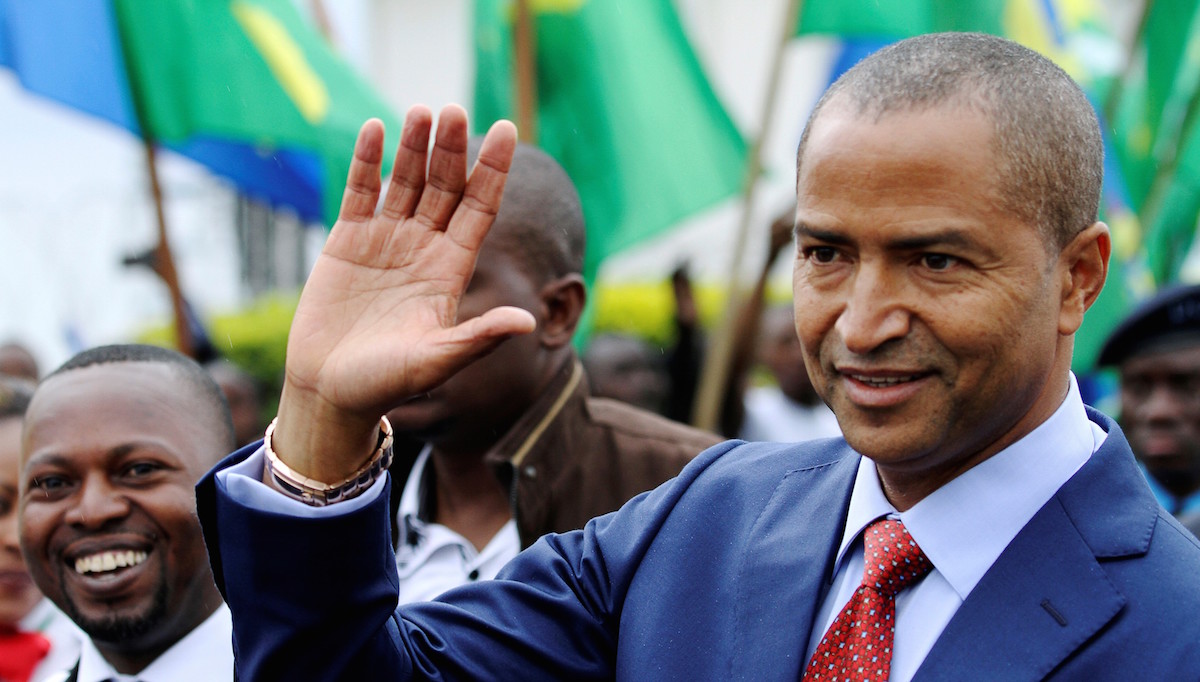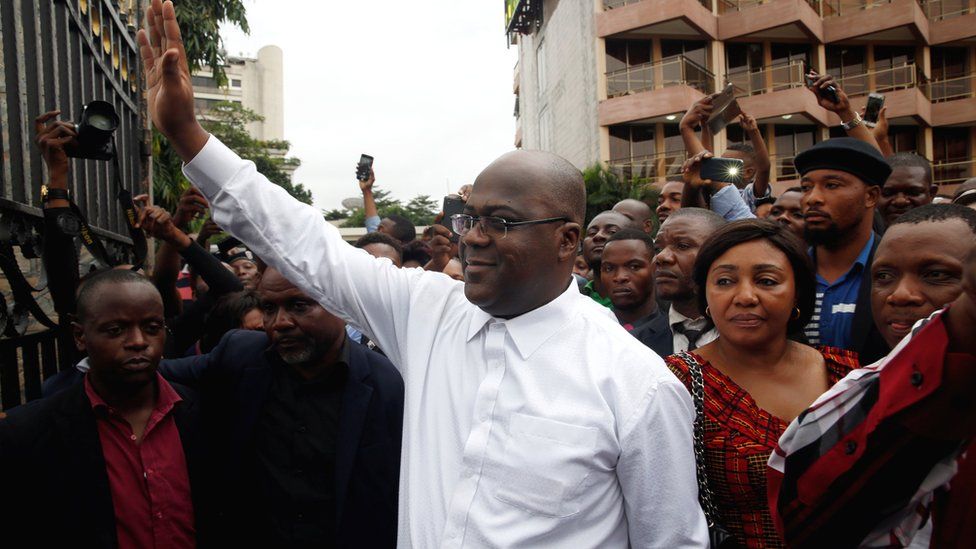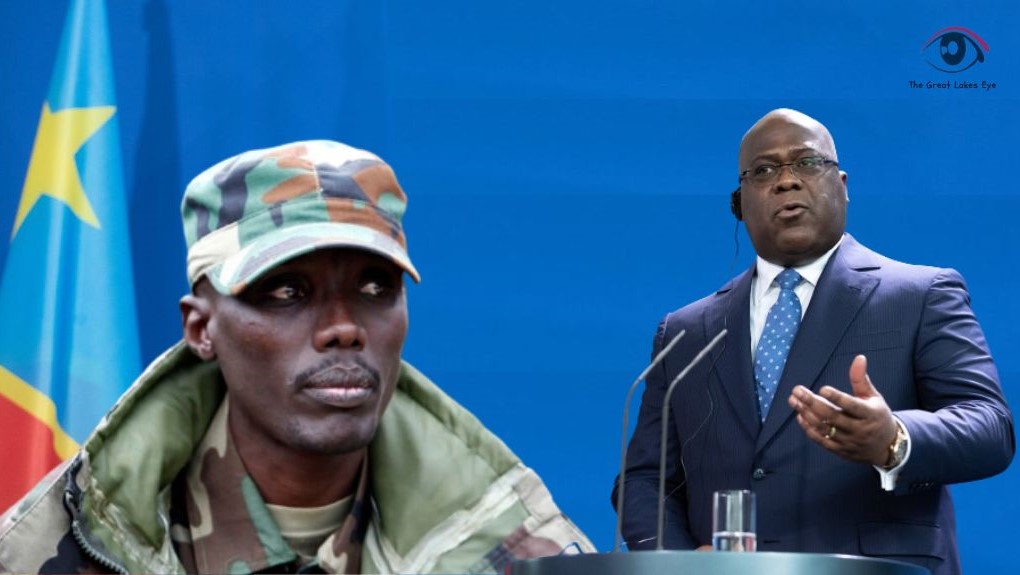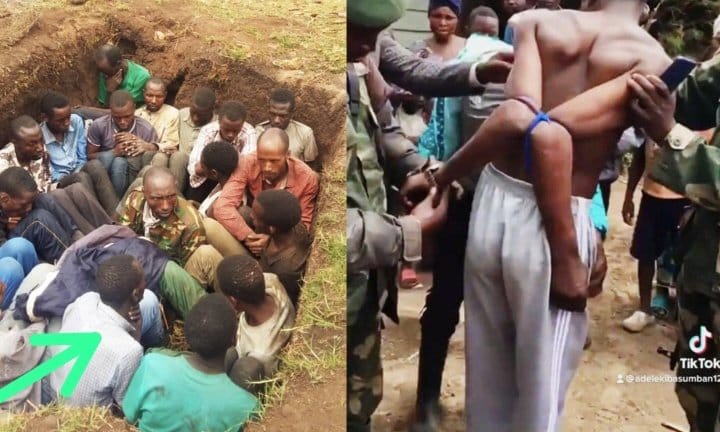Regional
Kinshasa continuously legitimizing Wazalendo, plotting mass murder in region
.jpg-20231025080945000000.jpg)
Hundreds thousands of Congolese youth have been calling themselves "Wazalendo [nationalists]" while persecuting Congolese Tutsi, under Kinshasa's watch.
Congolese
Minister of Foreign Affairs Christophe Lutundula told the media, on October 23,
that the ‘Wazalendo’ group was created to strengthen security in collaboration with
the population.
"Another
important point to note is that the population is present and tells us that
they do not feel protected. We will continue to strengthen security in
collaboration with the population. This is why there is the 'Wazalendo'
phenomenon, and we take good note of it. It is unacceptable to criticize a
Congolese for standing up, taking up arms, showing courage and defending the
country," said Lutundula.
In
November 2022, Congolese President Félix Tshisekedi rallied young Congolese to
organize themselves into vigilantee groups, called Wazalendo, to support the
country’s security forces in what he called a ‘hefty mission’.
The
Congolese leader made the call in response to what he alleged was a Rwandan
“aggression” – in reference to claims that Kigali was militarily supporting the
M23 rebel movement in DRC's east.
The
term Wazalendo means “nationalists or natives”. The Wazalendo phenomenon in
context of ongoing conflicts in eastern DRC implies patriots fighting against
M23 rebellion that is referred to as “foreigners”.
The
narrative of referring to M23 rebels as foreigners is propagated and spread by
Kinshasa to emphasize the narrative that the rebel group is made up of foreigners,
allegedly Rwandans, and not Congolese citizens.
Irresponsible
and incompetent governments, while plotting for mass murder, specifically
genocide, historically used the same narrative.
In
neighboring Rwanda, the genocidal government created Interahamwe and Impuzamugambi militias, among others, who also called
themselves nationalists while persecuting the Tutsi, referring to them as
foreigners and enemies of the country.
During
World War II (1939–1945), there was Einsatzgruppen,
paramilitary death squads of Nazi Germany that were responsible for mass murder
in German-occupied Europe. The Einsatzgruppen
had an integral role in the implementation of the so-called "Final
Solution to the Jewish question," a Nazi plan for the genocide of
individuals they defined as Jews during World War II, in territories conquered
by Nazi Germany.
“When
compatriots [Wazalendo] defend the homeland you cannot say that they are
negative forces,” said Congolese Communication Minister Patrick Muyaya.
Who are
the Wazalendo defending their homeland from?
Kinshasa
has been alleging that the M23 rebellion is made up of foreigners. On many
occasions, Congolese government officials were recorded calling upon the
general population to attack Kinyarwanda-speaking Congolese, especially
Congolese Tutsi.
With
Kinshasa justifying Wazalendo attacks against Congolese Tutsi, observers say
that this signals another mass murder in the African great lakes region, nearly
30 years after the 1994 Genocide against the Tutsi in Rwanda.
Many
calls have been made, warning about a looming genocide against Congolese Tutsi.
But nobody is listening to M23’s grievances.
Wazalendo
and the Rwandan genocidal militia operating in eastern DRC, FDLR, have been on
frontlines persecuting Congolese Tutsi, burning their houses, destroying their
properties as well as shooting their cattle.
Pretexts
of Wazalendo being “auto-defense civile” by Tshisekedi are illogical.
The
same plot was used by Juvénal Habyarimana when he was planning the 1994
Genocide against the Tutsi in Rwanda.
While regional leaders have urged Tshisekedi to solve conflicts in eastern DRC through political dialogue with concerned parties, he insists on a military solution which has brought no positive achievement in the past.








